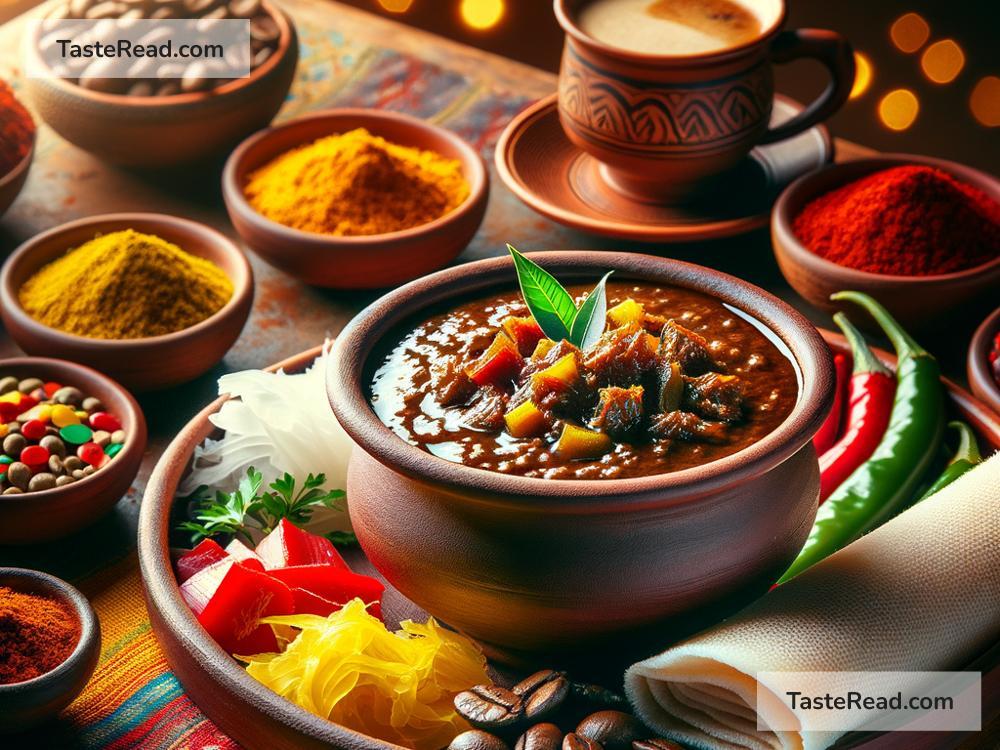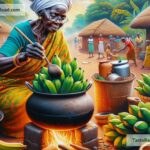The Cultural Symbolism of Ethiopian Doro Wat in Special Occasions
Ethiopia is a country rich in culture, history, and traditions. Its food is a reflection of this heritage, with dishes full of flavor and meaning. Among these special dishes, doro wat stands out as an iconic Ethiopian stew made with chicken, onions, spices, and hard-boiled eggs. It is much more than just a meal—it symbolizes hospitality, celebration, and togetherness. In Ethiopia, doro wat has a deep connection to special occasions and is infused with cultural symbolism.
The Magic of Doro Wat
Doro wat is a slow-cooked, thick stew that starts with finely chopped onions cooked to perfection. Then comes the spiced butter, called niter kibbeh, and Ethiopian seasoning blend, berbere, a mix of chili peppers, garlic, ginger, and other spices. Chicken drumsticks or thighs simmer in the rich sauce, absorbing all the flavors, while hard-boiled eggs are added towards the end, symbolizing completeness and wholeness.
This dish is often eaten with injera, a flat, spongy sourdough bread made from teff flour. Injera serves as both the plate and utensil, as pieces are torn off to scoop up the stew. Sharing doro wat served on injera creates an intimate, communal dining experience.
A Dish for Special Occasions
Doro wat is not your everyday meal. It is labor-intensive and requires time and effort to prepare. For this reason, it is reserved for celebrations and meaningful gatherings like weddings, religious holidays, or family reunions. In Ethiopian culture, food is about more than nourishment—it is a way to bond, honor traditions, and show love. Doro wat is the pinnacle of this mindset.
During major Christian holidays such as Easter (Fasika) and Christmas (Genna), doro wat takes center stage. People spend the day preparing the dish with care and devotion, often cooking in large quantities to share with family and guests. By serving doro wat, hosts express their gratitude and respect to those they welcome into their homes.
Beyond holidays, doro wat is a popular dish for wedding feasts. In Ethiopian weddings, food is a love language, and serving doro wat shows the depth of joy and commitment surrounding the union. Guests gather to celebrate the couple, and doro wat symbolizes abundance and the couple’s new beginnings.
The Symbolism Behind the Ingredients
Each ingredient in doro wat carries meaning. The chicken is a special protein in Ethiopian food culture. Chickens are often raised at home, symbolizing self-sufficiency and care. This is why chicken is saved for important events rather than daily meals.
The boiled eggs in doro wat have an even deeper cultural meaning. The eggs are peeled and added whole to the stew, symbolizing fertility, new life, and unity. In weddings, for example, eggs in doro wat reflect the hope for a fruitful and harmonious marriage. Similarly, the spice blend berbere adds warmth and recognition of Ethiopia’s rich culinary identity.
The use of injera to eat doro wat also holds cultural significance. Injera isn’t just bread—it’s a representation of sharing and community. Ethiopians eat from a large communal platter, and each person scoops the stew with injera. This method of eating strengthens social bonds, reminding everyone at the table that food is best enjoyed together.
A Celebration of Ethiopian Identity
Doro wat represents Ethiopia’s unique identity and cultural pride. Ethiopian food, especially doro wat, is a celebration of the country’s rich diversity. With over 80 ethnic groups and languages, food often brings people together across differences. Doro wat has become a unifying dish that every Ethiopian can recognize, highlighting the importance of joint celebration.
For Ethiopians living abroad, doro wat is also a way to stay connected to their roots. Preparing and sharing this traditional dish brings home closer, keeping family traditions alive even in a different country. It is a reminder of Ethiopia’s vibrant past and a way of passing these traditions down to future generations.
A Universal Story of Love and Togetherness
The cultural symbolism of doro wat goes beyond Ethiopia’s borders. Food plays a universal role in celebrating milestones, showing love, and honoring traditions in nearly every culture. Doro wat is Ethiopia’s version of this universal practice. Whether it’s by making the effort to slow-cook the stew or creating space for communal dining, doro wat reflects values and priorities that are at the core of human connection.
Conclusion
Doro wat is more than a delicious stew; it is a dish wrapped in culture, history, and symbolism. It represents love, community, and celebration in Ethiopian society. From its carefully chosen ingredients to its communal serving style, doro wat embodies unity and togetherness during life’s most special moments. The next time you try doro wat or hear about it, remember that every bite carries the story of a proud and vibrant culture eager to share joy and connection with the world.


